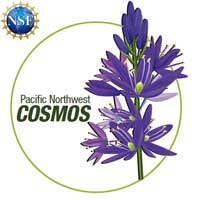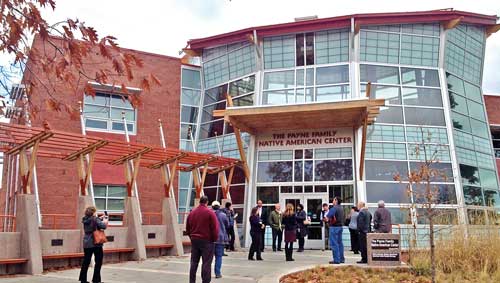[The Montana Professor 25.2, Spring 2015 <http://mtprof.msun.edu>]
MISSOULA – The University of Montana Graduate School recently was awarded a $730,000 grant as part of a $2.4 million National Science Foundation Alliances for Graduate Education and Professoriate. The grant is titled "Collaborative Research: The Pacific Northwest Alliance to Develop, Implement and Study a STEM Graduate Education Model for American Indians and Native Alaskans."

The goal of the grant is to increase the number of American Indian and Native Alaskan doctoral students who complete graduate programs in science, technology, engineering or mathematics, known as the STEM fields. The partner institutions forming the Pacific Northwest Circle of Success: Mentoring Opportunities in STEM, or PNW COSMOS, include UM, Washington State University, University of Idaho, Montana State University, Heritage University, Salish Kootenai College and Montana Tech.
"The reality is that the numbers of indigenous students in STEM fields obtaining graduate degrees, in particular doctoral degrees, continue to be very small," UM Graduate School Dean and principal investigator Sandy Ross said. "Our hope is that the Pacific Northwest AGEP will help start and support a positive change. This makes the PNW COSMOS a unique, important effort."
During the three-and-a-half year funding period, the Montana institutions will focus on developing a culturally relevant and collaborative indigenous mentoring program for American Indian and Native Alaskan students in STEM degree programs and their advisers. The goals of the indigenous mentoring program are to improve student retention and success and coordinate resources among PNW COSMOS alliance institutions.
UM co-principal investigator Blakely Brown, MSU co-principal investigator Sweeney Windchief, and Michael Munson at Salish Kootenai College, are leading the development and implementation of the model, assisted by UM co-principal investigator Aaron Thomas, director of UM Indigenous Research and STEM Education. UM co-principal investigator Dusten Hollist is a participant on the project's social science research team. The research team will identify and evaluate culturally attuned mentoring approaches that are effective for American Indian and Native Alaskan graduate students and that also encourage American Indian and Native Alaskan undergraduate students in STEM fields to proceed into graduate school. Ross and Thomas will collaborate on student and mentor recruitment strategies.
Contact: Sandy Ross, UM Graduate School dean, chemistry and biochemistry professor, 406-243-2572, sandy.ross@umontana.edu.

[The Montana Professor 25.2, Spring 2015 <http://mtprof.msun.edu>]